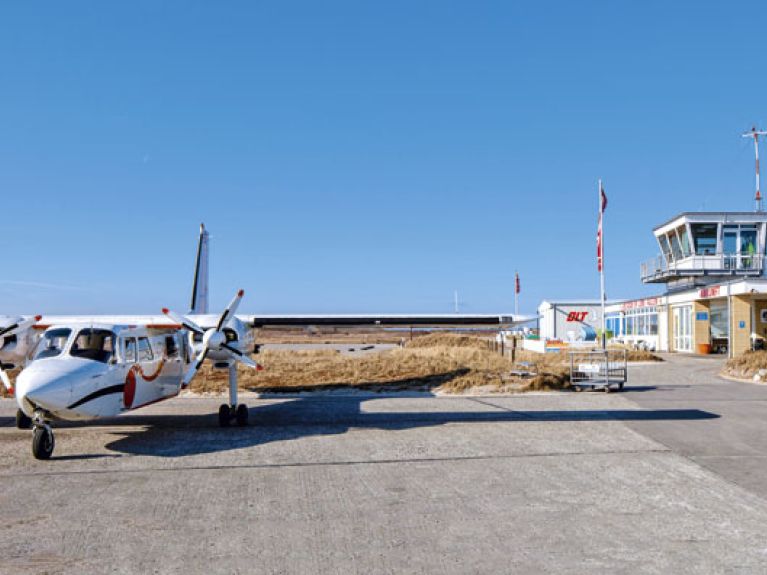Flying high with private pilots
The sharing economy has now conquered the skies: a Franco-German business start-up aims to achieve nothing less than the democratisation of European aviation.

Travelling from Aalen to Berlin? That’s six and a half hours by train, five and a half hours by car – or two and a half hours with Bernd on board his light aircraft. Private pilots like Bernd can use the Wingly website to offer seats on flights ranging from short sightseeing trips over town to direct connections between small airfields. Launched in 2015, this Franco-German business start-up aims to rid private flying of its elitist image: “We want to democratise aviation,” says German co-founder Lars Klein.
The founders are relying on a new trend: the sharing economy is based on people allowing others to use their possessions – whether they are apartments, cars or, in this case, planes. Many of our possessions are expensive to buy and maintain, but only rarely used. They are economically inefficient. The new businesses offer alternatives: with a click of the mouse you can find private rooms for a city break or book a ride with someone else. In addition to the comparatively low price, there is usually a commission paid to the website operator.
This sounds simple and is in keeping with the spirit of the times. But the sharing economy doesn’t always work quite so smoothly. In several German cities, for example, legal restrictions have been applied to the letting of private rooms to tourists. According to supporters of this rule, it is wrong that large numbers of apartments are only rented out to tourists while local inhabitants cannot find a place to live.
The Wingly founders do not have this kind of problem: an EU directive explicitly envisages private pilots being able to offer empty seats – as long as they do not make a profit from the extra passengers. Pilots are only allowed to split the costs between the passengers, but that enables them to save up to 75% of their expenses in a four-seat aircraft. That currently leads to passenger flight contributions of 50 to 100 euros per hour.
“We really want to stay on the leisure side,” says Lars Klein. Air safety authorities are actually pleased about the service: the reduction in costs means many private pilots use their aircraft more often, gain more experience and make air traffic safer as a result. By the end of 2016, the founders hope to have 30,000 registered users and a few thousand who have actually shared an aircraft. Of course, people rarely fly the desired route at the desired time, which is why a “flight alarm” is intended to inform interested passengers if a pilot offers the appropriate route.
Interestingly, Klein and his French co-founders Emeric de Waziers and Bertrand Joab-Cornu would not have found one another without the technology they use. De Waziers and Joab-Cornu were aviation enthusiasts who wanted to reduce the high costs for private pilots. Klein, on the other hand, was inspired by the sharing economy principle and looking for exciting areas to apply it. The trio met on an online platform bustling with eager prospective entrepreneurs – and soon realised that a partnership would make sense: “We had the same vision of where our business should be in five years’ time,” explains de Waziers.
Nevertheless, they made allowances for an emergency landing: if their plans had not been fulfilled after six months they would have made adjustments. However, one and a half years after the launch, their company is continuing its ascent. The crossborder cooperation offers advantages. “There might sometimes be different ways of taking decisions,” says Klein, “but that doesn’t have any effect on day-to-day business.” The headquarters of the small team is located in Paris, and the founders together contribute knowledge and expertise about sales and marketing in their initially targeted markets of Germany and France. And in any event European borders are barely visible from the cockpit. ▪

